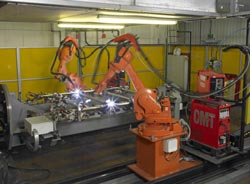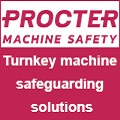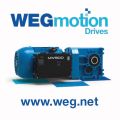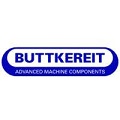
Posted to News on 27th May 2012, 22:27
Youngman uses robots instead of outsourcing production to China
ABB is helping the Youngman Group achieve flexible production and improved productivity, thanks to 2.5 million investment in state-of-the-art automation.

Youngman Group, which is a leading manufacturer of access towers, staging, trestles and ladders, has invested 2.5million in new automation including two fully-automated welding cells based around ABB IRB 1600 robots. This is enabling the company to compete against imports from lower-cost economies, while increasing production flexibility and reducing stockholding.
The investment was agreed following a management buy-out in 2005 when it became clear that investment in the UK operation made more sense than continuing to outsource manufacturing to China. There had been little investment in the Youngman business leading up to the buy-out, so all of the main production processes were manual, including cutting, cropping and welding aluminium tubes, while the manufacturing volume flexibility was only achieved by increasing the use of temporary skilled labour.
Speaking about the initial concerns raised by the new management team, Paul Bentley, the managing director of the Youngman Group explains: "We recognised that we needed to invest in the future of the company, as it was clear costs were continuing to rise and the company was facing cheaper competition from European and Chinese manufacturers. The other major concern was that in the face of a slowdown in the traditionally cyclical construction market, the company would be slow in reducing costs and then slow to recover if labour had to be recruited and trained in skilled welding roles. Due to this, the decision was made to move towards robotic welding."
Turnkey project
The company's production engineers quickly identified laser cutting and robotic welding as the optimum areas for improvement, so they approached ABB with a view to ABB providing a turnkey project. The first step was for ABB to establish the design requirement over seven different frame designs and five different frame lengths, and then to create an automation concept that would provide Youngmans with the flexibility and ease of production required.
ABB proposed two fully automated welding cells. In each cell, an IRB 1600 robot (ABB's compact 'bending backwards' robot), is mounted on a servo-driven track to increase the working area of the cell. The track motion system is designed to ensure reliable and effective utilisation of a robot's capability and greatly extend its working area, thereby enabling one robot to reach long workpieces. With the positioning of the welding torch being critical to the joint required, the track motion system successfully ensures the accuracy of the robot while maintaining the speed of production.
One of the most important elements of the Youngman Group's investment was the development of the Cold Metal Transfer (CMT) welding process to match the finished product requirements. This process uses a controllable aluminium weld pool in all positions to allow precise control of the heat input to produce high-quality welds with minimum product distortion and an improved appearance.
Speaking about the development of the CMT welding process, Steve Bartholomew, the account manager for ABB robotics comments: "The development of the CMT welding process called on our most experienced welding engineers to develop a complete right-first-time solution, which was created in combination with ABB's RobotStudio simulation software. The results speak for themselves, with Youngman experiencing a dramatic increase in flexible production, enabling the business to meet even the most challenging production demands."
Clever control
Finally, ABB's fifth-generation IRC5 robot controller is used to enable the robot, track and welding equipment to work together seamlessly, providing instant responses to changes in welding parameters, travel speed and robot positions. Each 80mm weld path has an average of eight positions, with individual weld data, robot and track positions.
Bartholomew adds: "We programmed the welding cells to operate around the clock, six days a week, and are pleased to note the investment has already begun to significantly improve production efficiency. Youngman were at an advantage at the outset. The choice to look forward and invest in automated technology was made ahead of the economic downturn, enabling the business, which was already performing well, to present a strong case for investment."
Paul Bentley adds: "With no corporate hierarchy to hinder approval of the investment and a supportive union, it was unanimously accepted that the investment would help to secure the future of Youngman employees with the added benefit of enabling the business to compete globally. The welding cells operate around the clock, six days a week, and we have already noted significant improvements. The next step is to continue looking at further investment in robotic manufacturing equipment. We are committed to our vision of growing the company in a very competitive global market which we believe can be achieved by a continued investment in state of the art manufacturing capabilities."
For further information about the potential benefits of integrating robots into production processes, go to www.abb.co.uk/robotics.






























